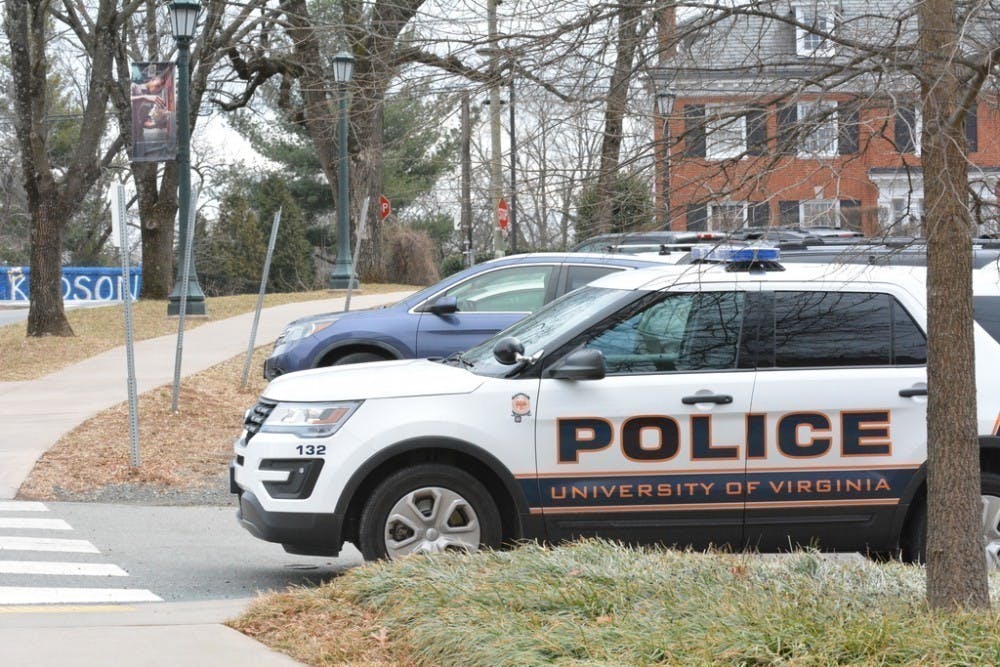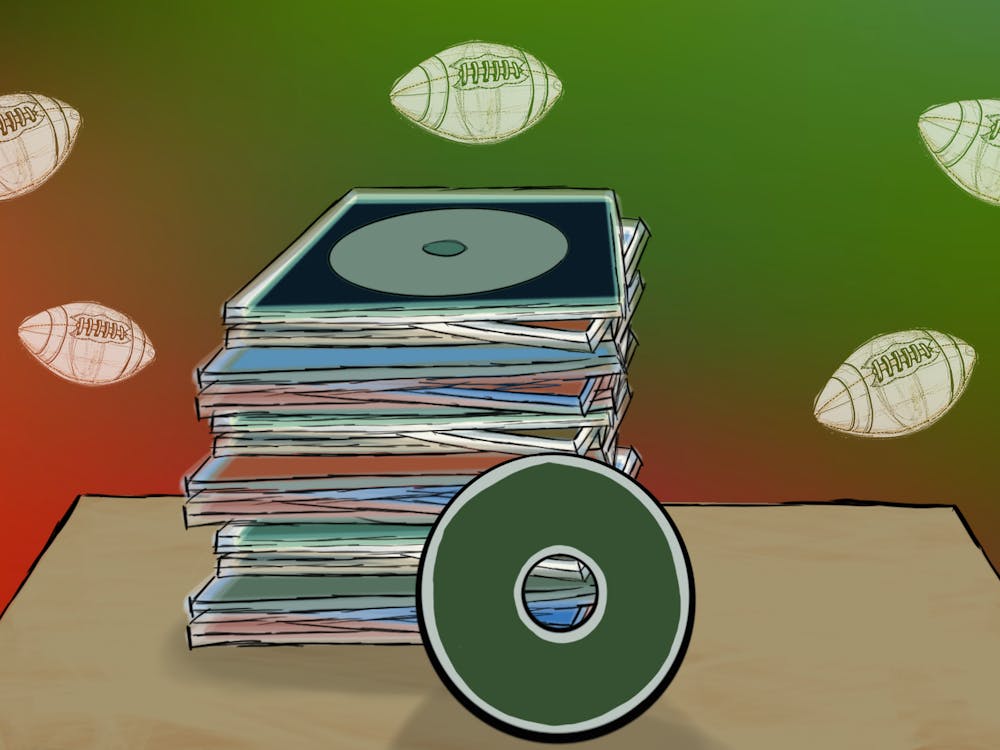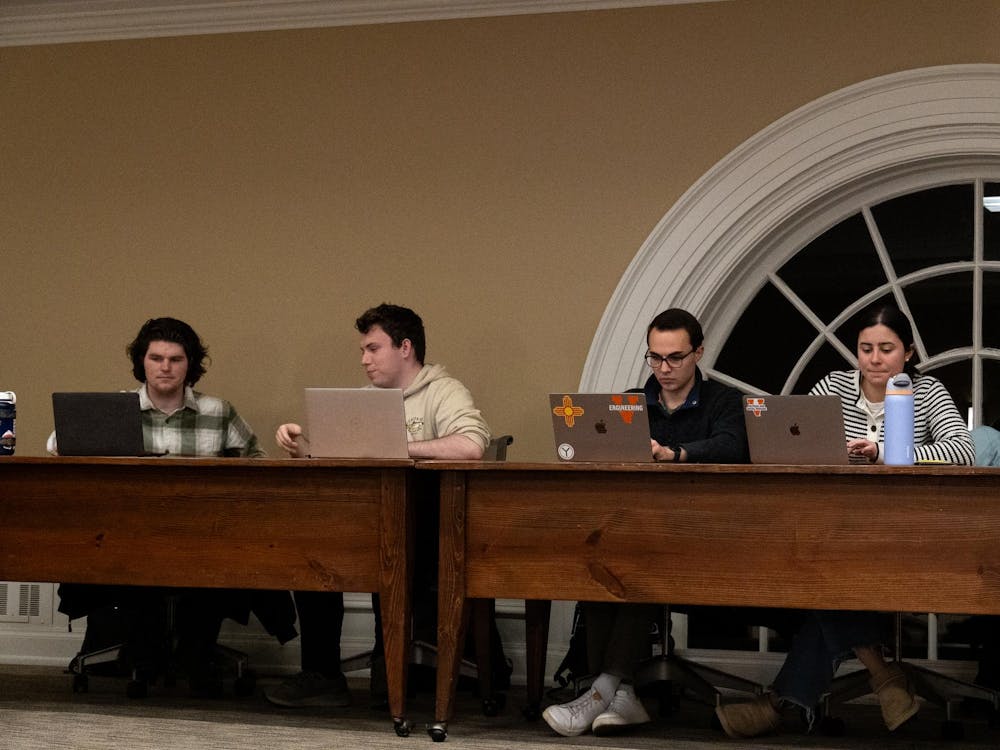A University Police Department internal investigation found “poor judgment” by an officer in a November incident on the Corner that, according to Defund Charlottesville Police, resulted in a local man seeking medical attention at U.Va. Health for three broken ribs. The officer involved was placed on administrative leave and is required to undergo several weeks of training, then will return to the job.
UPD’s Office of Professional Standards conducted an internal review along with the University’s Office for Equal Opportunity and Civil Rights after the Charlottesville Commonwealth’s Attorney Joe Platania determined that there was no criminal conduct related to the actions of the officers who responded to this incident.
The internal investigation determined “the responding officer exercised poor judgment in pursuing the individual after he walked away and the threat of an altercation dissipated,” but did not find the officer to be in violation of University policy or Virginia law.
“I have directed that the involved officer, who remained on administrative leave while the investigations were underway, be assigned to an experienced Field Training Officer for the next several weeks,” Longo wrote in a statement Monday. “A training plan has been proscribed that will focus on the principles of Fair and Impartial Policing, effective communication strategies and de-escalation.”
The investigation considered the role of multiple UPD officers who were involved in the incident, according to University Spokesperson Brian Coy.
The incident began the night of Nov. 16 when a UPD officer observed a man and a woman yelling loudly at one another on the Corner and decided to intervene because they were “concerned that a physical altercation was imminent,” according to Chief of Police Tim Longo.
The man, who was subject to a No Trespass Order for all of Grounds, then declined to identify himself and walked away, crossing University Ave. from the Corner onto Grounds to avoid the incident.
The man was not detained until after he trespassed, Coy added, after which the officer had probable cause to arrest him. According to Virginia Code section 18.2-119 and University policy, violation of a No Trespass Order is a Class 1 misdemeanor and grounds for arrest.
“The responding officer pursued him onto Grounds, followed him as he returned to the Corner and attempted to restrain him with the help of additional UPD officers who had arrived at the scene,” Longo said. “A struggle ensued until a UPD supervising officer arrived and directed that the individual be permitted to sit upright without handcuffs and be examined by Emergency Medical Services personnel.”
An eyewitness cited by Defund Charlottesville Police said the “struggle” involved police forcing the man to the ground, pressing down on his ribs, back and eventually neck — only releasing when the supervising officer directed them to do so.
“[He] was visibly in pain and was confused during the situation as he did not know why he was being detained or being hurt by the police,” the witness told Defund Charlottesville Police.
According to Longo’s statement, the man told medics that he had sustained an injury to his arm, as well as one of his toes, and refused medical assistance at the scene. The man had purchased two bags of food from Sheetz, which he dropped during the incident. According to Longo’s statement, the food was returned to him before he left the scene.
After arriving at the U.Va. Medical Center Emergency Room, a UPD supervisor was summoned to take a statement about his additional injuries. The man sustained three broken ribs as a result of the altercation, according to Defund Charlottesville Police. He did not report these injuries to the UPD officer, according to Longo.
“He refused further contact and directed them to leave,” Longo said. “At no time did he ever report injuries to his ribs or any other parts of his body.”
Longo added that, since the November incident, several officers have undergone virtual training on constitutional policing through Montpelier’s Center for the Constitution. The trainings “tackle complex constitutional topics from sources of power in a democracy, to minority vs. majority rights, Supreme Court decisions involving the 4th Amendment and advancements in 21st-century policing” and end in scenario-based learning, according to the Montpelier site.
“This particular training opportunity was reserved for 15 of our officers and approximately 10 others who were chosen by the Department of Criminal Justice Services,” Coy said. “This was the inaugural presentation of this training program that was developed by a U.Va. graduate and current doctoral candidate who is studying at Harvard.”
All officers who join the department are trained at the Central Shenandoah Criminal Justice Academy in Weyers Cave, except for those who come to the department having previously undergone basic law enforcement training elsewhere, Coy said. The individual officer assigned to an additional training plan will be in addition to these original requirements.
In collaboration with the U.S. Department of Justice Community Relations Service, Longo said that Cortney Hawkins, the department’s diversity, equity and inclusion manager, also plans to work closely with the University’s Office of Equal Opportunity and Civil Rights, the Equity Center, Student Council’s Police Accountability Board and other student and faculty-led organizations.
“This particular incident is a reminder to me and to the other leaders of this department, that we can always do more to evaluate and improve the ways we serve this community,” Longo said. “I am incredibly mindful as to how this unfortunate incident has impacted the way many view our department and will work hard to restore the confidence, faith and trust [of] our community.”
In November, Defund Charlottesville Police called for the termination of all officers involved.
“UPD and CPD coordinated efforts to terrorize and brutalize another Black Charlottesville street-based resident who dared to be visible in the vicinity of U.Va.’s hallowed Grounds when there is no evidence that his presence posed any actual threat of harm to anyone,” the organization stated.
Following the outcome of the UPD investigation, a written statement from Defund Charlottesville Police says the community “should not be surprised” that the department is not taking punitive action beyond officer training. The organization cited Longo’s testimony in the 2015 case of Freddie Gray — a 25-year-old Black man who died of a spinal cord injury in Baltimore police custody.
“Freddie Gray is still dead, and here we are, still dealing with Longo's penchant for justifying police violence,” the organization wrote, calling for Longo’s resignation and for the University to defund UPD.
Longo testified in the case during his tenure as chief of the Charlottesville Police Department, where he served from 2001 to 2016. Prior to joining CPD, Longo spent over 18 years in the Baltimore Police Department. He officially joined the University in February 2020, after serving in an interim position since October 2019.
In his 2015 testimony, Longo argued Officer William G. Porter's actions on the day Gray was arrested were "objectively reasonable." Porter faced charges of involuntary manslaughter, second-degree assault, reckless endangerment and misconduct in office, until prosecutors ultimately dropped the charges against Porter and two other officers involved.
Coy assured University leadership’s “complete confidence” in Longo’s role as chief of police and associate vice president for safety and security, adding that “he has demonstrated the leadership and personal character necessary to keep our community safe in a way that reflects the University’s core values of justice and equality.”
Longo has served as a witness for both the prosecution and the defense in cases involving officer misconduct and other topics, Coy said.
“The fact that his expertise was sought in a variety of cases [of] alleged police misconduct is a reflection of his national reputation as an impartial expert on these matters,” Coy said. “In the midst of a national conversation about the proper involving role of police in our society, the University is fortunate to have a leader with Chief Longo’s wisdom and experience leading our public safety services.”
For both 2019 and 2020, just over half of the annual Safety and Security budget — $7,323,764 and $8,883,519 respectively — was set to be allocated specifically to UPD. The department’s operating expenses were set at $1,051,056 in 2019 and increased to $1,653,217 in 2020.
“Thinking that training will solve this problem only happens when we are willing to live in a world where we believe that police violence is rational and therefore justified,” Defund Charlottesville Police wrote of the UPD investigation’s outcome. “We want to imagine a different world. As long as the police are sanctioned to carry out extrajudicial punishment at will, no amount of training will end police violence.”
This article was updated to include additional input from Defund Charlottesville Police and University Spokesperson Brian Coy.





